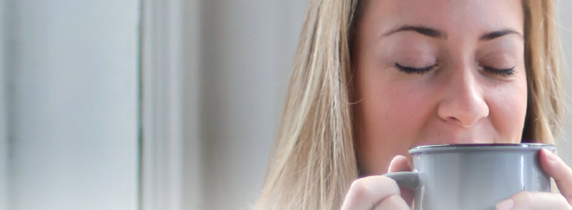Many people facing cancer have said that learning ways to better manage stress, such as practicing relaxation, has helped them cope with their cancer experience. This is well supported by research which has demonstrated that training in relaxation techniques can reduce anxiety and improve emotional wellbeing. These skills can also be useful for managing other stressful situations such as work and the challenges of daily life.
The Learning to Relax program is a free of charge two hour workshop which aims to introduce relaxation into the lives of Queenslanders affected by cancer. During the workshop, patients and their caregivers are provided with specific training in relaxation techniques and coaching about how to incorporate these techniques into their daily lives.
The techniques covered during the program include:
Slow breathing: this involves deep, slow breathing while concentrating on filling the lungs and relaxing the muscles
Progressive muscle relaxation: this is a technique of contracting and relaxing the muscles from head to toe in a sequence
Guided / mental imagery (visualisation): this involves being guided in imagining a relaxing scene or series of experiences. In our workshop, the beach was the focus of this exercise.
Learning to Relax was piloted in 2017 at various locations across the state including Brisbane, the Gold Coast, Townsville, Gympie and Cairns.
The pilot program was well received with participants reporting feeling more relaxed and finding the techniques easy to learn. Participants also valued the opportunity to practice the exercises in a group setting where they could discuss the experience of relaxation.
One of our Learning To Relax participants says
Being shown techniques for how to relax really helped me.
As with any new skill, it’s important for people to be able to carry through what they have learned beyond the workshop setting. It was hoped that participants would leave the workshop with confidence to introduce relaxation techniques into everyday life. So, it was encouraging to note that many participants reported feeling motivated to incorporate these techniques as part of their own personal plans for managing stress and improving overall wellbeing.
Since the pilot program, workshops have been delivered in CCQ accommodation lodges in Brisbane and Townsville, increasing access of this valuable program to lodge residents.
It’s our vision to expand the program to reach all Queenslanders impacted by a cancer diagnosis. So, our Cancer Support and Information Team are developing podcasts which will be freely available as well as plans to deliver the program over the phone.
This program would not be possible without the generosity of CCQ supporters. Thank you.
Relaxation tips
You would think that relaxing is something should that should come easily. But for many of us who are workaholics, constantly stressed or have health issues it can be hard to find the off switch. Relaxing is something we have to learn and practice, but once you’re in the habit it’s extremely beneficial for your health and well-being.
If you’re wondering how to relax here are some simple ideas to get you started.
- Choose a relaxation exercise that is right for you! If you enjoy your exercises, it is more likely you will fit the practice into your normal routines. To experience the different types of exercises, call 13 11 20 to order a free copy of CCQ’s A guide to relaxation booklet and CD. Or listen to our sessions below.
- Think about when you will practice and make a regular time. Choose a time when you are unlikely to be interrupted or to feel rushed. Think about whether mornings or another time of day is the best time for relaxation practice.
- Pick a place that is quiet and distraction-free to practice your relaxation. This will help you to concentrate. Some people have a favourite room in their house, others have a special spot in the garden. These are just a few ideas to help you get started.
- Practice regularly. Relaxation exercises are a skill and as with any skill, the more you practice the better you will get.
- Be patient with yourself. Don’t worry if your mind wanders and you become distracted. If you become distracted during practice, gently remind yourself to refocus.
- If you become bored, experiment with other types of relaxation. It is important to keep the exercises enjoyable, something you look forward to. If you have become bored, it may be time for a change.
- Cancer treatments such as surgery, radiation therapy or chemotherapy may cause tenderness in parts of the body being treated. Take care when doing relaxation exercises involving tensing and releasing muscles. Don’t overdo it, and never hold, tighten or stretch a part of the body if it hurts. Try an exercise that involves mental imagery instead.

